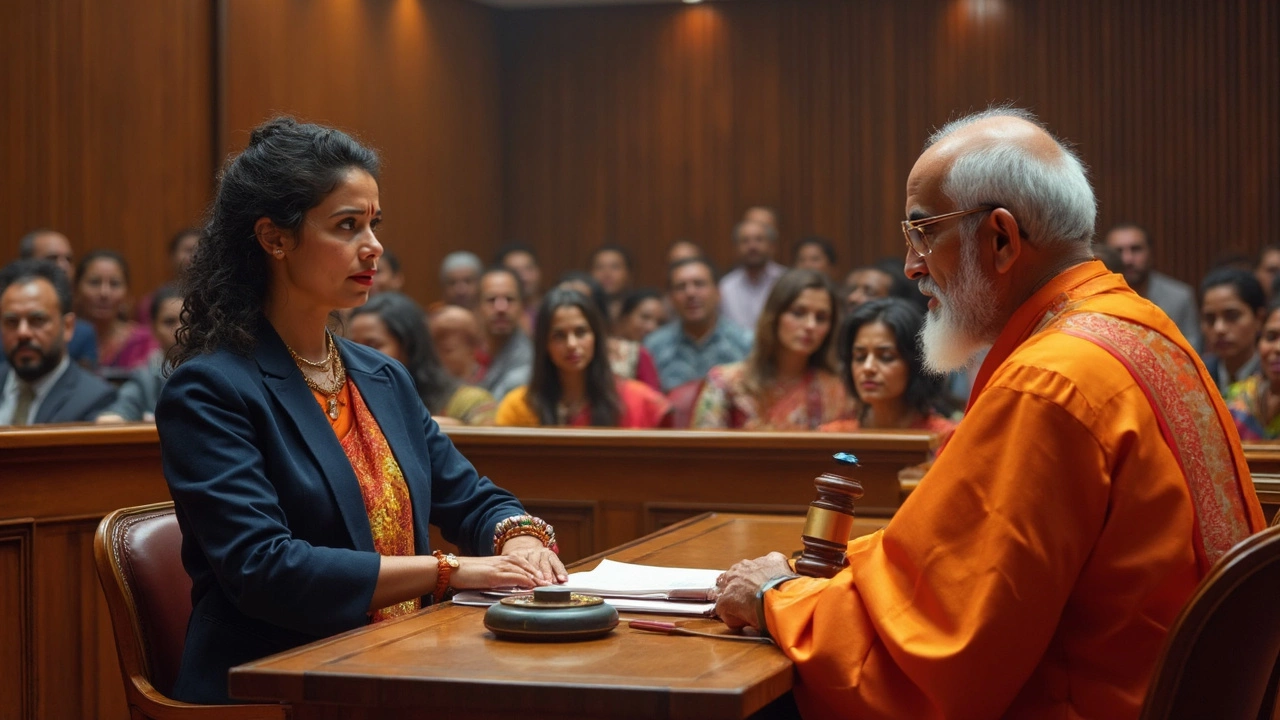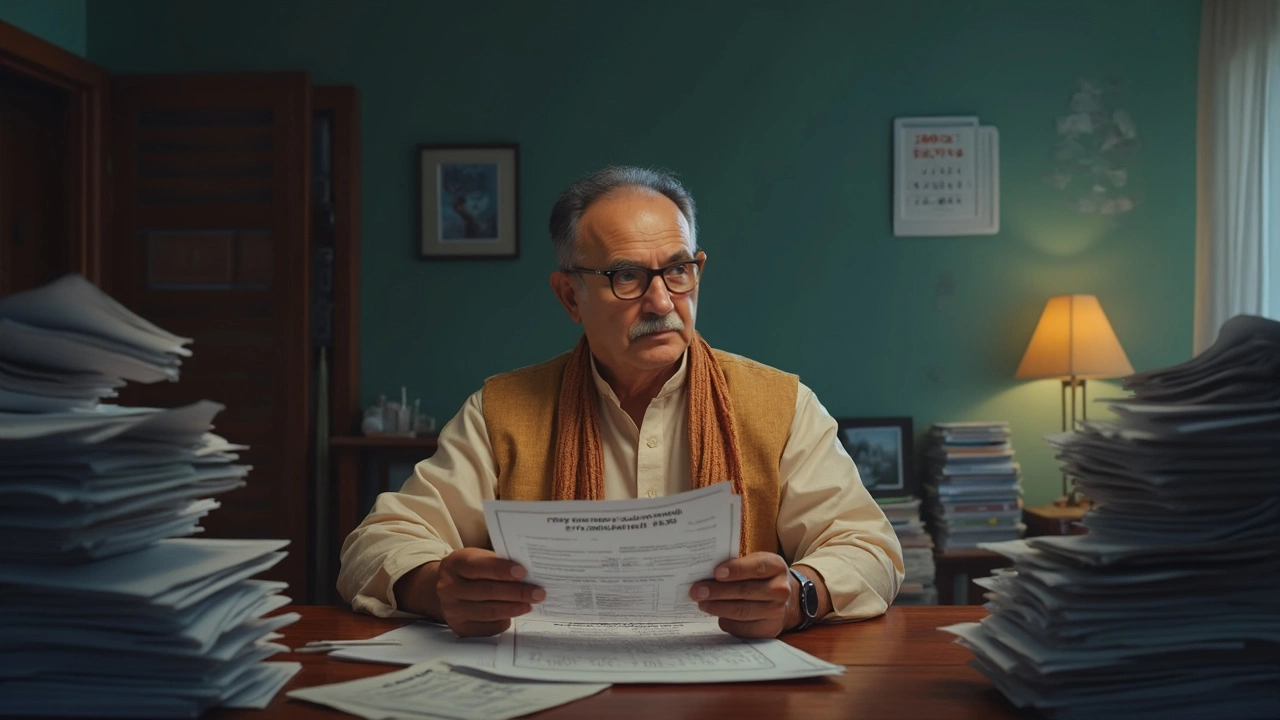Divorce can feel like navigating a maze filled with financial puzzles. One thing folks often get tangled up in is the fate of their 401k. Perhaps you've been divorced for years, moving on from that chapter, but there's that lingering question: Can your ex suddenly lay claim to your hard-earned retirement savings?
The answer isn't a straightforward 'yes' or 'no.' It swings on what your divorce decree states. If your decree mentions that your 401k is off-limits, then in most cases, you're in the clear. However, it can be more nuanced if the decree is silent or vague about it.
There’s also something called a Qualified Domestic Relations Order (QDRO). If this was issued during the divorce, it might already detail how the 401k is split. If it wasn’t handled back then, revisiting it years later could get sticky, but not impossible.
- Understanding 401k and Divorce
- What the Divorce Decree Says
- Time Limits and Legal Considerations
- Potential Scenarios and Outcomes
- Steps to Protect Your 401k
- Getting Legal Help
Understanding 401k and Divorce
When you went through your divorce, sorting out finances probably felt like pulling teeth. One big topic that often comes up is the 401k. This retirement savings plan is a crucial piece of the financial puzzle, and how it gets divided can impact your future significantly.
A 401k is essentially a retirement account sponsored by your employer. Contributions pull from your paycheck before taxes, which is great for your future nest egg. But when it comes to divorce, the court often sees it as a marital asset, especially if you contributed to it while married.
During the divorce process, state laws typically guide how assets like a 401k are divided. Many states follow equitable distribution, which doesn't always mean a 50-50 split but what's deemed fair. Others, like California, are community property states, where marital assets can be split evenly.
Here's where it gets a bit tricky. You may have worked long and hard building up that 401k, but if those contributions happened during the marriage, your ex might have a legal right to a portion of it. This all boils down to the divorce decree and any QDRO issued.
A Qualified Domestic Relations Order (QDRO) might have been issued in your case. This legal document instructs the 401k plan administrator on how to pay out the benefits to your ex-spouse. Without it, dividing a 401k isn't simple. Importantly, QDROs are not automatically created with every divorce. Someone needs to request it, often through a lawyer.
Focusing on the actual numbers, did you know that about 50% of divorced spouses need to split their retirement account assets? Many people find this surprising! This doesn't mean your ex automatically gets half; the split will depend on various factors.
What the Divorce Decree Says
The divorce decree is like the ultimate rulebook for what happens to your 401k after a split. It’s a court order that finalizes your divorce, and laying eyes on this document should be your first move when figuring out any financial claims.
Most divorce decrees will define how marital assets are to be divided. This includes everything from real estate to savings accounts—and yes, your 401k. If the decree explicitly states that your retirement savings are solely yours, then you're probably in safe waters. But if it was silent or mentions a split, you may need to take action.
Important to remember, though, is the presence of a Qualified Domestic Relations Order (QDRO). If your decree hinted at a retirement account split, the court might have issued a QDRO. This order is specifically about dividing retirement plans, so dig it out if necessary.
If years have passed, there might be provisions about time limits for claiming the 401k. Sometimes, if it’s not claimed within a set period, the opportunity might pass. But don't count on that without checking the decree.
Here's a pro tip: keep copies of the divorce decree and any related court orders in an easily accessible place. It’s like having a map in case you find yourself lost in the financial labyrinth of post-divorce life. You might also want to review these documents every so often, especially if there have been changes in applicable laws or financial landscapes.
Time Limits and Legal Considerations
When it comes to 401k and divorce, timing can play a big role in what happens. One of the things you might be wondering is: are there time limits for your ex-wife to make a claim on your 401k? The short answer is that the law doesn't set a specific time frame. However, any claim would typically need to link back to the original divorce agreement.
If your divorce decree didn’t cover your 401k or was vague, your ex might still try to make a claim later. It's crucial to understand that legally, the courts often look at the divorce decree as the binding agreement, unless both parties agree to modifications later on. Always worth checking is if there was a QDRO in place because that can clarify what was intended about the 401k split.
One more thing to chew over: some states have laws that might allow a spouse to revive claims on assets even years later, especially if there was a lack of disclosure during the divorce. This doesn't mean claims will automatically succeed, but it could open the door for legal action.
The takeaway? Even if years have passed, keep a keen eye on your divorce paperwork. Make sure any updates or changes are legally documented. And if things start to feel murky, getting legal advice can save you from a financial surprise down the road.

Potential Scenarios and Outcomes
So, what's the worst-case scenario when it comes to your 401k and an ex-wife staking a claim years after the divorce? It really depends on a mix of factors and how things were wrapped up in the divorce decree.
Imagine you didn’t have a Qualified Domestic Relations Order (QDRO) during your divorce. If this is the case, your ex might try to contest the division, but it typically involves reopening old files. This is more challenging and often not a straightforward path because courts don't usually like to revisit settled asset allocations.
Now, if there's an existing QDRO that mentions your 401k, the terms there typically remain binding, even years down the line. It's like a concrete agreement unless both parties willingly decide to amend it.
Let's look at some scenarios:
- Scenario 1: If your ex-wife wasn't awarded any part of the 401k as specified in the original divorce settlement, her chances to lay claim are slim.
- Scenario 2: If the 401k was supposed to be divided as per a QDRO, and it wasn't executed properly, your ex may still have a valid claim.
- Scenario 3: If you both agreed, even casually, to revisit the division, it's possible to add modifications, but both have to mutually consent.
Being clear about what your paperwork says is key. No one wants to be caught off guard with surprises later. If you're unsure what a document means for your 401k, it might be worth digging it up or getting some legal advice.
Steps to Protect Your 401k
Worried your ex might put her hands on your 401k? Totally understandable. Let’s walk through some things you can do to keep your retirement savings safe.
First up, you’ve got to know what’s in your divorce decree. If it lays out clear rules about your 401k division, you’re in a solid spot. But if there's any wiggle room, here’s what you should do next:
- Review and Understand Any Existing QDRO: Make sure you’ve got a copy of any Qualified Domestic Relations Order tied to your divorce. It’s vital to understand how it affects your 401k and if it clearly sets any limits.
- Consult a Family Law Attorney: Doesn’t matter if the ink on the divorce papers is dry or not—consulting with a family law attorney can clue you into what protections you have and the potential risks.
- Revisit Beneficiary Designations: After a divorce, people often miss updating their beneficiary info. Double-check that your ex isn’t still listed. Trust me, it’s crucial.
- Keep Financial Documentation Handy: Keep clear and visible records of decisions made about your finances in the divorce. This includes keeping detailed pension statements and any related correspondence.
- Consider a Legal Lockdown: If there’s still uncertainty, you can file a protective order to block any claims that might arise unexpectedly down the line.
Proactively managing these steps can shield your retirement nest egg from any surprise claims and strengthen your financial security.
Getting Legal Help
Wading through the waters of a divorce can feel like a solo mission, but it doesn’t have to be. If questions pop up after the dust settles, especially about your 401k, it's a good move to reach out for some legal guidance.
Having an attorney who knows the ins and outs of family law isn't just about covering your back—it's about knowing what options are on the table. A seasoned lawyer can help decipher the legalese of your divorce decree and unearth any details you might’ve overlooked. It's crucial because misunderstandings here could mean the difference between hanging onto your retirement stash or losing a chunk of it.
When searching for an attorney, consider those with a strong track record in handling 401k cases post-divorce. They can offer advice on whether a Qualified Domestic Relations Order (QDRO) needs revisiting or if it's time to address any inconsistencies in your divorce agreement.
- Look for attorneys with specific experience dealing with financial aspects of divorce, especially retirement funds.
- Consider consultations with multiple lawyers to get different perspectives and quotes.
- Check reviews and possibly get recommendations from friends or family who’ve been in similar situations.
If things move toward litigation, having someone skilled in negotiation could save both time and money. And remember, it's not just about the here and now. The right legal guidance ensures that decisions made today will protect your interests down the road.
Getting legal help sooner rather than later can be a game-changer. It’s your 401k, after all; best to treat it with the importance it deserves.
